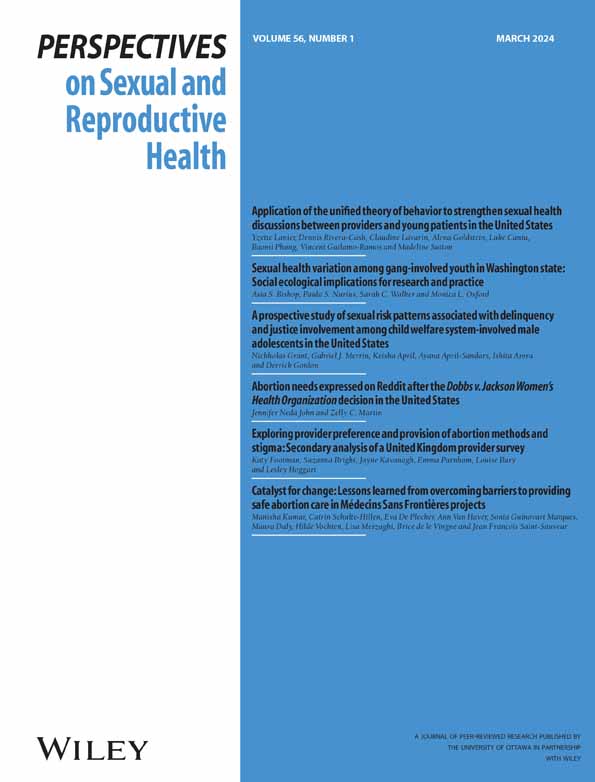临床医生对伦理和COVID-19的看法:注意性健康和生殖健康的差距。
IF 3.4
2区 医学
Q1 DEMOGRAPHY
引用次数: 13
摘要
本文章由计算机程序翻译,如有差异,请以英文原文为准。
Clinician Perspectives on Ethics and COVID-19: Minding the Gap in Sexual and Reproductive Health.
In the United States, policies and practices enacted in response to the COVID-19 pandemic— such as social distancing, sheltering in place, shifting to telemedicine and limiting care to ‚essential‛ procedures—are widening gaps in sexual and reproductive health (SRH) outcomes and access to services. As obstetricians-gynecologists, pediatricians and adolescent medicine specialists who are frontline providers of SRH services, we are seeing firsthand the documented decreases in access to SRH education, abortion and contraceptives (particularly long-acting reversible contraceptives, or LARCs), and increases in reports of gender-based violence.1–4 These trends have disproportionately affected minoritized and marginalized groups, including adolescents, people of color, those living in poverty, immigrants and undocumented individuals, and those living in rural areas.5,6 In this viewpoint, we provide a clinician’s perspective on the gaps in services and outcomes between these and more privileged groups, and make recommendations to narrow these gaps, both now and in the future. In some cases, the gaps in access to SRH services have been an unintended effect of COVID-19–related policies. For example, access to SRH services at federally qualified health centers and community-based clinics has been limited because of budgetary constraints, A cc ep te d A rti cl e
求助全文
通过发布文献求助,成功后即可免费获取论文全文。
去求助
来源期刊
CiteScore
5.10
自引率
3.40%
发文量
24
期刊介绍:
Perspectives on Sexual and Reproductive Health provides the latest peer-reviewed, policy-relevant research and analysis on sexual and reproductive health and rights in the United States and other developed countries. For more than four decades, Perspectives has offered unique insights into how reproductive health issues relate to one another; how they are affected by policies and programs; and their implications for individuals and societies. Published four times a year, Perspectives on Sexual and Reproductive Health includes original research, special reports and commentaries on the latest developments in the field of sexual and reproductive health, as well as staff-written summaries of recent findings in the field.

 求助内容:
求助内容: 应助结果提醒方式:
应助结果提醒方式:


